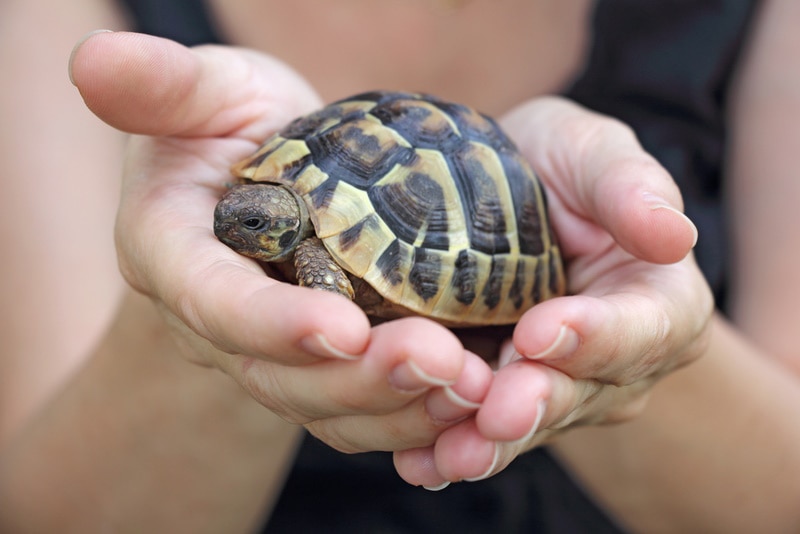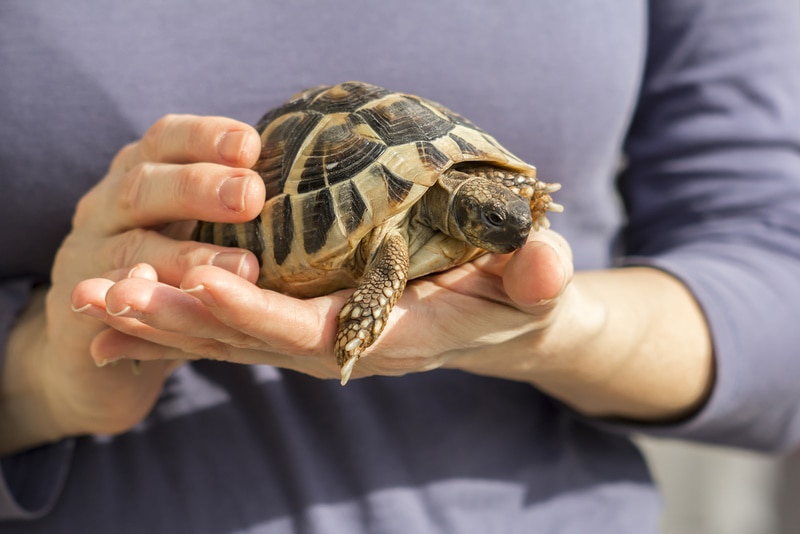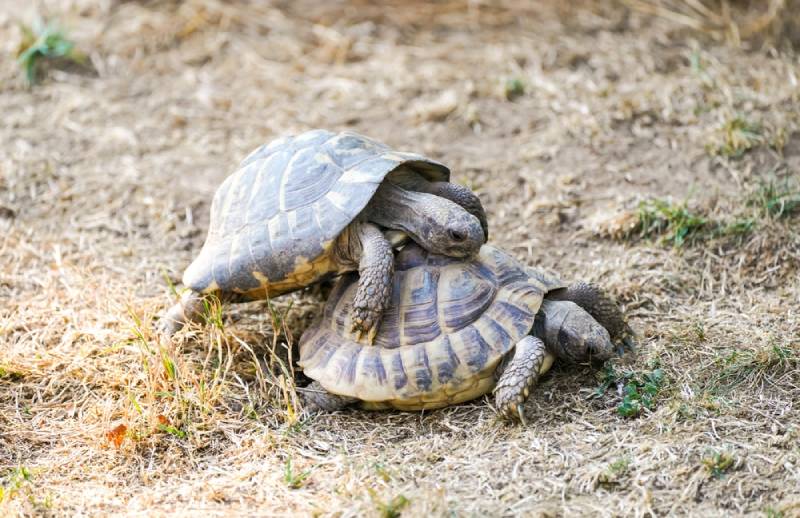Do Turtles Recognize Their Owners? Vet-Reviewed Facts & FAQ
By Jordyn Alger
Updated on

The love we have for our pets can be enormous, but sometimes, it can be challenging to tell if our pets feel the same about us. This is especially true with reptiles, less common pets than cats or dogs and more challenging to understand. Sometimes, it can even feel like your turtle doesn’t recognize you; however, that isn’t the case. The truth is that many turtles recognize their owners, and some even hurry to approach their owners as soon as they spot them!
Exactly how far does this acknowledgment go? Can turtles feel emotions as strong as love? If you are curious to learn more, keep reading below.
Do Turtles Get Attached to Their Owners?
If turtles recognize their owners, they must be capable of forming attachments with them. Well, the truth is a bit more complicated than that. According to experts, it is difficult to determine the extent to which turtles can form attachments. Most reptiles still maintain primitive characteristics, unlike domesticated cats and dogs, which can clearly form an emotional bond with humans. So, while scientists have not been able to deny the presence of emotional attachment in turtles there is no evidence to confirm it, either.
However, many turtle owners have shared anecdotes explaining why they believe their pet turtles have formed attachments with them, so, if you feel a connection with your pet turtle, don’t be quick to dismiss those feelings. The more you nurture your turtle, the more your pet will associate you with care and trust, which is a valuable attachment in its own right.

Do Turtles Feel Love?
The emotional range of turtles is believed to be limited. For instance, most experts agree that turtles can feel fear and aggression. Other emotions, however, they are not so sure about.
This largely comes down to their social structure, or lack thereof. After a turtle lays their eggs, they leave the nest and the hatchlings to emerge on their own. They do not have bonded family units, nor do they form groups or alliances. Their behavior relies almost entirely on instinct, so there is no requirement for any teaching-learning relationships either, and the only “emotions” that have been objectively observed are associated with survival, like fear or aggression.
However, there have been instances of reptiles displaying other emotions. For example, snakes in zoos have been observed displaying curiosity and even excitement. Various reptiles have also exhibited pleasure from human contact. So, while your turtle may not be able to feel love, they may feel excitement and even contentment in your presence, which could be considered to be “reptile love”.
At least initially, turtles will likely gravitate towards their owners as they associate them with food. However, this positive association with you and food may in time develop into a positive association with your presence, even in the absence of a food reward.
Can Turtles Form Good Relationships with Their Owners?
If a turtle’s ability to form attachments and experience love is questionable, is it possible to have a positive relationship with a pet turtle? Absolutely! While a bond with a pet turtle may look different from one with a pet cat or dog, it is no less valuable. A good relationship with your pet turtle can be incredibly rewarding, as many owners will attest. A turtle may not snuggle or play fetch, but there are still plenty of ways to establish a positive relationship with your pet.

Handle Your Turtle
Many turtles enjoy having their shells rubbed or even gently scratched, and some enjoy having their heads and chins stroked. If you are petting your turtle, you may notice them pushing into your hand to receive even more attention.
While handling your turtle, be attentive to ensure your pet is not overwhelmed or distressed by your touch. If you continue to touch your turtle past their comfort levels, then they may display fear and aggression. Similarly, always wash your hands thoroughly before and after handling your turtle since they can carry Salmonella.
Provide an Engaging Home
Simply placing your turtle inside of a tank is not enough. Your turtle needs to explore hiding spaces, climbing areas, and other enrichment opportunities. It also helps if you rearrange your pet’s enclosure now and then to provide more variety. By creating an engaging home for your pet, you can watch your turtle interact with various structures, which can be highly entertaining. The more at ease and enriched your turtle is, the more likely it is that they will feel content and curious enough to interact with you.

Take Time Outside of the Enclosure
With careful supervision, your turtle can explore the world outside their enclosure, including the great outdoors. Turtles often love to go outdoors, and they enjoy digging and wandering. Of course, never leave your turtle unattended when they are outside of their cage.
Final Thoughts
Turtles recognize their owners and may move closer when they see you. While it is uncertain whether they can form attachments or feel love, it is undeniable that turtles and their owners can have rewarding relationships. Whether or not your turtle can feel love doesn’t diminish the bond that you have with your pet. Because they do not engage in familial or social relationships, feelings of trust, contentment and companionship are not natural for turtles, so when we observe these sorts of behaviors in our terrapin friends, we cannot deny that there is a level of recognition and attachment between them and their doting humans.
Featured Image Credit: Ivan Smuk, Shutterstock











